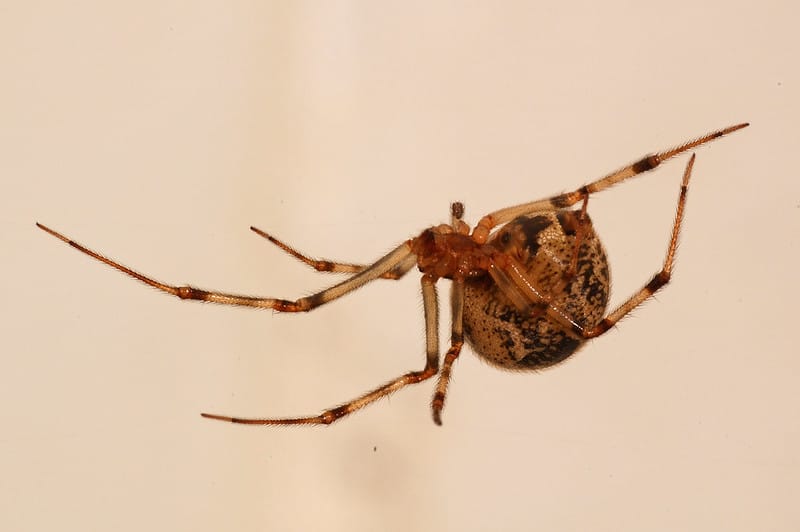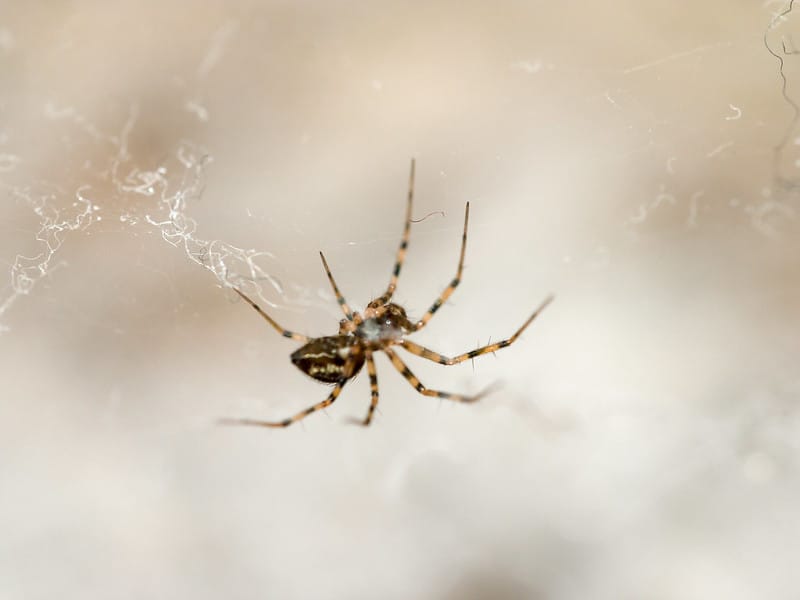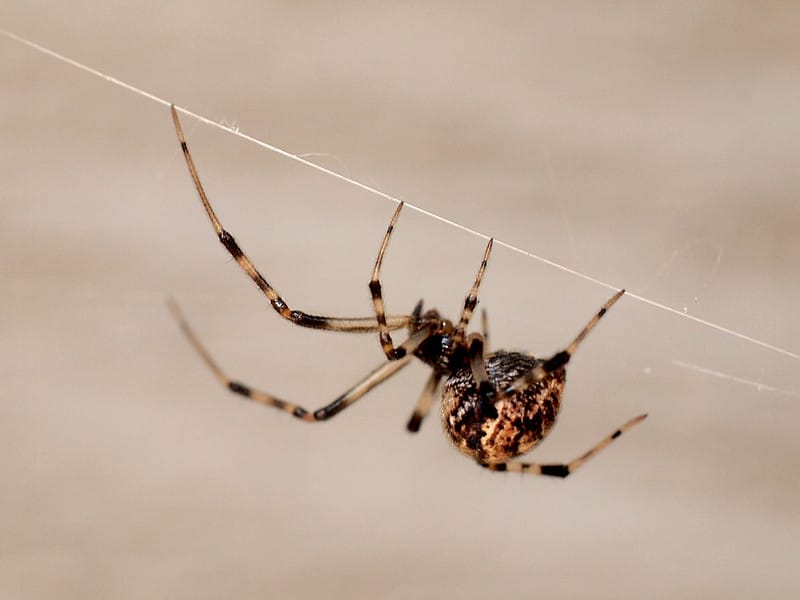What do House Spiders eat?
House spiders are fantastic natural pest control predators. In this piece we'll run through typical food and water sources for the American House Spider.

House spiders are fantastic natural pest control predators. In this piece we'll run through typical food and water sources for the American House Spider.

House spiders are carnivores and predominantly eat smaller insects and flies.
Spiders are, in many ways, ideal for pest control. Their diet includes (but is not limited to):
Many spiders spin webs to catch their prey. Once stuck, the insect tries to flee, producing vibrations throughout the entire web network. This sends a signal to the spider, which might be somewhere else entirely (which definitely helps given spiders are mostly blind even with four pairs of eyes).
The digestion process then officially beings — albeit outside of the body. The spider will inject venom into the prey with its fangs. This venom also doubles up as a liquifying digestive enzyme that breaks meats down, apart from being a subduing, paralyzing, or even a killing agent.
The prey’s meat is turned into a semi-solid fluid and subsequently drank. Yuck.
Fun Fact: Did you know that, unlike many house spiders, more than half of spider species hunt without webs? They hunt by ambushing and grasping the prey while the venom/digestive enzyme is delivered.
As a precautionary measure, some spiders also wrap their victims in the web before eating them. These are generally the more vicious of the lot (such as ground spiders or the black widow). On the other hand, some spiders do it just to save the meal for later.
In addition to their primary webs, Spiders also have signal threads. This signal thread connects the main web to the ground. These are usually deployed in corners that insects frequent. When an insect produces vibrations in the signal thread, the spider can hurry down to trap it.
Web-spinning spiders like the American house spider or the black widow are adept at working their way around their webs. Unbeknownst to the prey (and very much by design), only some parts of the web are sticky.
Every living organism on Earth needs water to stay alive.
Spiders don’t drink water the conventional way. They absorb water and moisture from natural sources. For example, spiders in the wild can suck up water from droplets on vegetation and even from morning dew.
Spiders can go a couple of months without water. Being very energy efficient as well as cold-blooded, they have negligible heat production in their body (their metabolism is also extremely slow compared to similarly-sized insects), which helps them retain body moisture for longer.
You’re unlikely to find your resident house spider drinking water off a dripping tap or droplets on the floor. A large part of their water intake comes from consuming their prey.

Most homes have a handful of spiders each season, often found in corners, or in dark basements, or storage closets […]

Spider repellents The easiest way of getting rid of house spiders is to fill your home with a scent they […]

The biological name of this species is Parasteatoda tepidariorum, often abbreviated as P. tepidariorum. In short: the house spider doesn’t […]